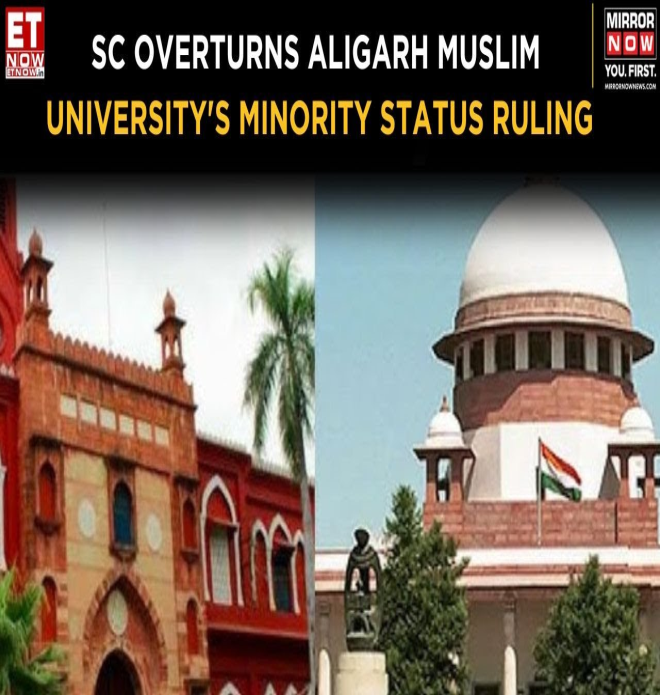Supreme Court Overturns 1967 Ruling on AMU’s Minority Status
Why in the news?
The Supreme Court reversed its 1967 ruling in the Azeez Basha case, granting Aligarh Muslim University (AMU) the possibility to claim minority institution status, sparking legal and political debates.
Key Points:
- Background and Legal Change:
- Azeez Basha Case (1967): The Supreme Court had previously ruled that AMU could not be considered a minority institution, as it was established through central legislation, not by the Muslim minority.
- Recent Supreme Court Ruling (2023): The Court overturned the 1967 ruling, affirming that institutions established before the Constitution’s adoption are entitled to protections under Article 30(1) if their foundational purpose was to benefit the minority community.
- Article 30(1) and Minority Rights:
- Article 30(1) of the Constitution: Guarantees religious and linguistic minorities the right to establish and manage educational institutions.
- Majority Verdict: The Court ruled that educational institutions do not lose their minority status just because their administration is no longer solely by the minority community. Statutory recognition or changes in administrative structure do not invalidate an institution’s minority character if its original intent was to serve the minority community.
- Implications and Dissent:
- Dissenting Opinions: Justices Surya Kant, Dipankar Datta, and S.C. Sharma disagreed, critiquing procedural issues and questioning the legitimacy of granting AMU minority status after nearly a century.
- Future Developments: The Court ordered a re-evaluation of AMU’s minority status and its reservation policies, with far-reaching implications for its autonomy and governance.
This ruling has significant implications for AMU’s future and the broader debate on minority rights in India.
Sources Referred:
PIB, The Hindu, Indian Express, Hindustan Times




